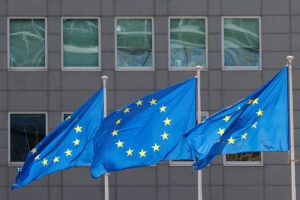Philippines ranks second on global cyberattack list

THE Philippines ranked the second among countries that saw the most cyberattacks worldwide last year amid the increased use of digital platforms due to the coronavirus pandemic, cybersecurity company Kaspersky said on Tuesday.
“We have seen how adversity, such as the pandemic, hastened the digital transformation among local businesses and customers alike. In the same vein, cybercriminals saw it as an opportunity to take advantage of the cybersecurity weaknesses of those jumping on the digital wave,” Chris Connell, Kaspersky managing director for Asia Pacific, said.
The company said data from the Kaspersky Security Network showed the 2022 global ranking was topped by Mongolia at 51.1%, followed by the Philippines with 49.8%, Ukraine with 49.6%, Greece with 49.5%, and Belarus with 49.1%.
It said the Philippines moved up two spots from the previous year.
The ranking is based on the number of web-based cyber threats detected and blocked by Kaspersky products.
Attempts of malware spread through removable drives declined to 25.06 million in 2022 from 35.83 million in 2021, placing the Philippines in 72nd place worldwide in 2022 from 70th in 2021.
Worms and file viruses accounted for the majority of local malware detected and blocked by Kaspersky products in the Philippines, while there were a number of cybercriminals who tried to penetrate systems through attacks via browsers.
Its products detected and foiled incidents 39.39 million attacks through browsers in 2022, down from the 50.54 million in 2021.
“Drive-by downloads and social engineering are the favorite attack methods used by cyber attackers to spread malware on their victims,” Kaspersky said.
“A drive-by download attack is when a user visits a website and unintentionally downloads a malicious code, while a social engineering attack is when a user downloads malware but was made to believe it’s a legitimate program. If a company employee connects to an unsecured Wi-Fi network or visits a non-work related website, such actions could result in disastrous and costly damage to company data,” it added.
Mr. Connell said businesses should ensure they have basic protection from cyberattacks.
“Secure the endpoint and then have encryption in place. As you expand, spending on the business and security should be in lockstep. It’s pointless to build a business that is not protected because once you’re compromised, it is costly to repair the damage. At the very least, it could look like losing opportunities for your business because of lost customer trust,” he said.
“As the country moves towards sustaining its recovery, I hope Filipino businesses will be as aggressive in protecting their devices and their data as cybercriminals are persistent in preying on them,” Mr. Connell added. — Justine Irish D. Tabile




